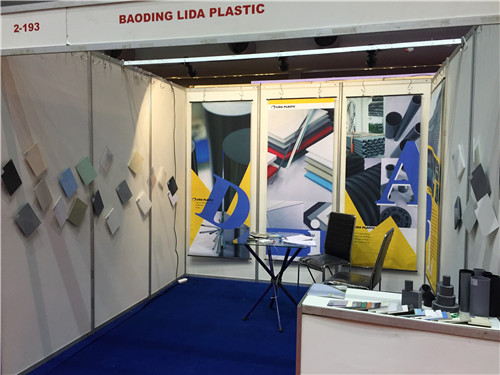okt . 21, 2024 05:28 Back to list
HDPE Pipeline Solutions for Efficient Drip Irrigation Systems and Agricultural Applications
High-Density Polyethylene (HDPE) Pipe for Drip Irrigation A Comprehensive Overview
Drip irrigation is a crucial agricultural technique that allows for efficient water use and optimal crop growth. Among the various materials used in the construction of drip irrigation systems, high-density polyethylene (HDPE) pipes stand out due to their numerous advantages. This article explores the benefits, features, and applications of HDPE pipes in drip irrigation, highlighting their role in sustainable agriculture.
What is HDPE?
High-density polyethylene is a thermoplastic polymer made from petroleum. Characterized by its high strength-to-density ratio, HDPE is known for its durability, flexibility, and resistance to a wide range of environmental conditions. The material is non-toxic, making it suitable for use in agricultural applications where it may come in contact with food crops.
Advantages of HDPE Pipes for Drip Irrigation
1. Durability and Longevity HDPE pipes are highly resistant to corrosion and have excellent chemical resistance. This makes them ideal for environments where traditional metal or concrete pipes may degrade over time. HDPE pipes can last for over 50 years under proper conditions, significantly reducing the need for replacements and maintenance.
2. Flexibility and Lightweight One of the standout features of HDPE pipes is their flexibility, which allows for easy installation around obstacles and in varied terrain. Additionally, they are lightweight compared to other pipe materials, making transportation and handling more convenient, thereby reducing labor costs during installation.
3. Low Friction Loss The smooth inner surface of HDPE pipes facilitates a low friction loss, ensuring efficient water flow. This is particularly important in drip irrigation systems where maintaining optimal water pressure is crucial for delivering water directly to the root zone of plants.
hdpe pipe for drip irrigation

4. Environmental Impact HDPE pipes are recyclable, contributing to sustainable farming practices. Their long lifespan also means fewer resources are used over time for maintenance and replacement. Using HDPE pipes helps farmers adopt more eco-friendly practices, aligning with the growing demand for sustainable agricultural techniques.
5. Cost-Effectiveness Although the initial cost of HDPE pipes may be higher than some traditional materials, the long-term savings related to maintenance, replacement, and water conservation make them a cost-effective choice for many farmers. Reduced water usage translates to lower operational costs, making drip irrigation systems more affordable in the long run.
Applications in Drip Irrigation
HDPE pipes are widely used in various agricultural applications, ranging from large-scale farms to small gardens. They are particularly effective in
- Row Crops Farmers growing vegetables, fruits, and grains can significantly benefit from the precise water delivery system enabled by HDPE pipes. - Orchards and Vineyards For fruit trees and grapevines, drip irrigation using HDPE pipes ensures that water and nutrients reach the root systems without waste, promoting healthier plants and larger yields. - Greenhouses In controlled environments, HDPE pipes assist in delivering moisture directly to plant roots, preventing waterlogging and promoting optimal growth conditions. Installation and Maintenance
The installation of HDPE pipes for drip irrigation requires careful planning and design to ensure efficient water distribution. It is essential to consider factors such as pipe diameter, spacing, and emitter flow rates. Once installed, these systems generally require minimal maintenance due to the durability of HDPE. Regular inspections, cleaning of emitters, and monitoring for leaks are advisable to keep systems operating efficiently.
Conclusion
High-density polyethylene pipes have become a popular choice for drip irrigation systems due to their numerous benefits, including durability, flexibility, and eco-friendliness. As agriculture increasingly moves toward sustainable practices, HDPE pipes play a vital role in water conservation and efficient resource management. By investing in HDPE pipes, farmers can enhance their irrigation systems, ensuring that crops receive the right amount of water at the right time. Overall, HDPE pipes represent a significant advancement in the field of agricultural technology, paving the way for more sustainable farming practices worldwide.
-
PVC Transparent Sheet Roll - Durable & Flexible PVC Plastic Sheet Roll for Industrial & Home Use
NewsJun.24,2025
-
High-Quality PVC PPR Pipes and Fittings Durable ERA PPR Solutions
NewsJun.10,2025
-
High-Quality Large HDPE Sheets & Large Diameter PVC Pipe Durable Large PVC Pipe Supplier
NewsJun.10,2025
-
High Density Polyethylene Cutting Board - Durable & Food Safe
NewsJun.09,2025
-
3 Inch PVC Pipe for Durable Irrigation Affordable & Reliable
NewsJun.09,2025
-
Premium PPR Plastic Water Pipe Fittings - Durable & Leak-Free
NewsJun.09,2025

